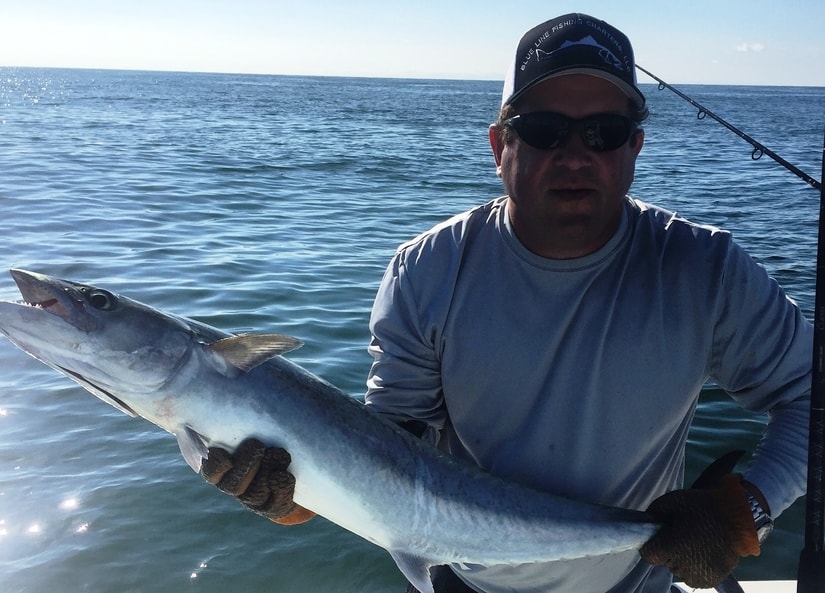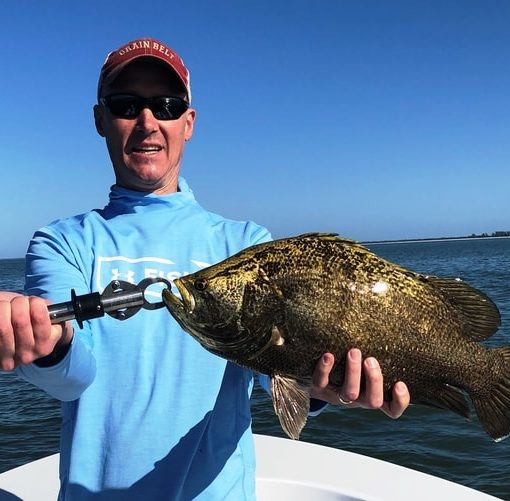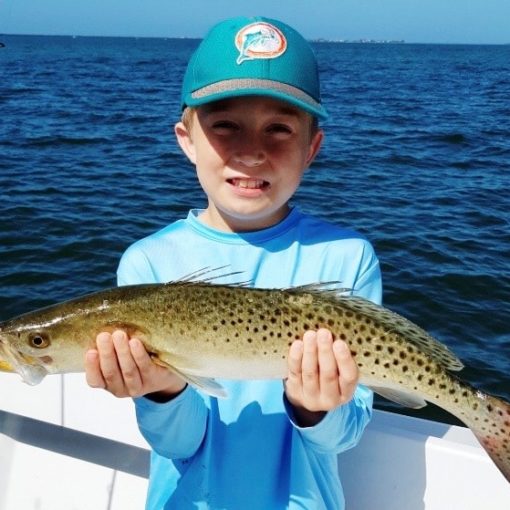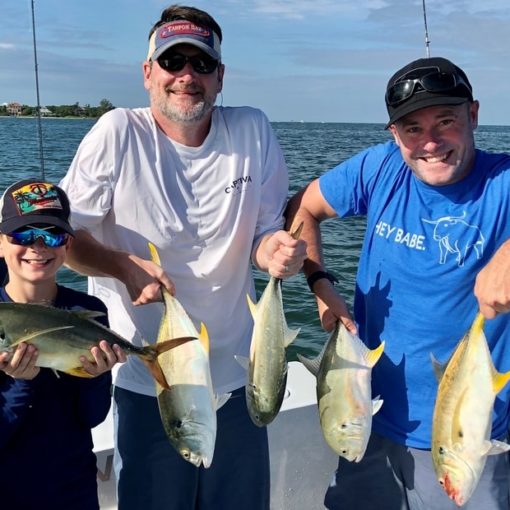The king mackerel is one of several species that go by the common name of kingfish around Florida. Its scientific name is Scomberomorus cavalla, and it is the largest species in this genus. Young king mackerel can be mistaken for cero and Spanish mackerel. All three have a blue-green back with silver sides fading to white under the belly, and rows of lateral yellow spots. However, the king mackerel loses these spots as it matures. Cero and spanish mackerel do not. The young king’s spots are also smaller than those on the other 2 species.
Another way to tell king mackerel from its near relatives is by its shape. The kingfish has a prominent drop in its top line around mid body. Both cero and spanish mackerel curve smoothly right the way along their body. When their first dorsal fin is erect, you’ll spot a third difference. This fin is totally translucent in king mackerel but has a prominent black spot in cero and spanish mackerel. If you’re not sure what you’re catching why not book with us. We run the most informative fishing charters Captiva Island, Sanibel Island, Cape Coral and Fort Meyers has available. Because we know our fish species, we can tell you exactly what you have on the end of your fishing line.
About Kingfish, AKA King Mackerel
King mackerels are a medium sized sub tropical fish. A typical adult can weigh between 11 and 30 pounds. Bigger specimens, up to 90 pounds plus, have been caught or seen but they are the exception rather than the rule. They are invariably females too. Indeed, most king mackerel over 15 pounds are females.
Kingfish prefer warm shallow tropical coastal waters and can be found in large schools in most tropical ocean regions around the globe. They’re particularly common along the coastline and around reefs here in Florida. Bigger adults can also be found inshore and around our harbors and inlets.
King Mackerel Migratory Habits
Interestingly, like the spanish mackerel, 2 distinct populations of kingfish have been identified around Florida. One group lives along the eastern coastline and migrates seasonally between North Carolina and southeast Florida. Tagging shows they winter off the Carolinas coast and remain there over fall and spring before moving south to Florida for summer. The other group lives in the Gulf of Mexico and heads north to Texas in summer, returning to Florida for winter. Both groups spawn continuously over summer, and in various locations along their migratory route.
Spawning And Growth
King mackerels are broadcast spawners, meaning sperm and eggs are simultaneously released into the water, where fertilization occurs. Mature females produce between 50,000 and 2 to 3 millions eggs each season. The eggs hatch in larvae around 24 hours after fertilization but after that, their first year of life remains largely a mystery. We do know they are dispersed over a wide area, are fast growing and have a relatively short larval stage, which reduces their vulnerability. Dolphins and little tunny are particularly fond of larva and juvenile kingfish! We also know that by the time they’re a year old, most king mackerel are 24 inches long and weigh 3-4 pounds. By age 7, females have outstripped males and are nearly twice as big.
Kingfish Dietary Habits
Kingfish are carnivores and the bigger they are, the larger their prey. Squid, jacks, sardines, smaller mackerel species, minnows, anchovies and various other fish are their preferred fare. Scientists studying the 2 groups of king mackerel have found that there are some noticeable dietary differences between them. The Atlantic group for instance eat far more small fish like anchovies and sardines than do the Gulf group. The Gulf group prefers ballyhoo, a small fish commonly used as bait.
Kingfish Fishing Cape Coral And Surrounding Areas
King mackerel are a very popular sport fish. They’re fast, plentiful, and put up a good fight. However, there are both size and catch limits in state waters to protect them from being over-fished. Blue Line Fishing Charters runs popular Cape Coral, Captiva and Sanibel Island, and Fort Myers fishing charters for Kingfish.





